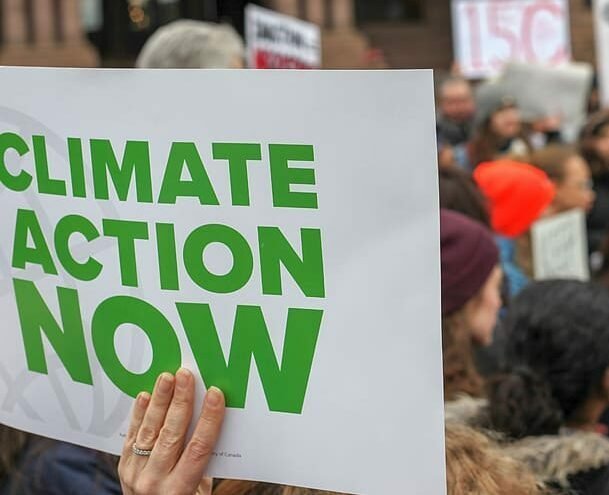UNITED KINGDOM: New measures to restrict activists’ movement during protests
During the 2021 Conservative Party Conference held in Manchester between 3 and 6 October, Home Secretary Priti Patel announced that the judiciary courts and the police will get new powers to stop the “small minority of offenders” intent on “causing disruption” during protests.
This came as a reaction to weeks of protests led by Insulate Britain, a recently-launched climate activist group calling for a national programme to ensure British houses are insulated to be low energy and cut carbon emissions by 2030. The group is also supported by some members of Extinction Rebellion (XR), a global non-violent direct action movement demanding a response to the climate and ecological emergency.
Insulate Britain activists, in recent weeks, have blocked the major roads around London, including motorways M1, M4 and M25 – despite three court injunctions already issued against them. The original injunction, granted to National Highways on 21 September, banned demonstrations on the M25 and was followed by an injunction, approved on 24 September, which restricted protests around the Port of Dover. A third injunction was granted on 2 October, banning protesters from obstructing traffic and access to motorways and major A roads in, and around, London.
Nonetheless, on 4 October, the protesters have again brought traffic to a standstill in the capital: the group blocked three major routes – the Blackwall Tunnel, Hanger Lane and Wandsworth Bridge – and 54 people were arrested. So far, 111 activists have being served orders under the government’s injunction to keep them off the M25.
Following the demonstrations on 4 and 8 October, Insulate Britain’s spokesperson Liam Norton said:
“This isn’t a cause, this is about the deaths of our children before they get to grow old. This isn’t protesting, this is about doing whatever it takes to protect the future generations. And we want to be clear, this campaign will continue until the government gives us a meaningful statement we can trust, if that happens we will get off the roads like a shot.”
On 5 October, the High Court in London heard the orders served against the ones who have been blocking the M25 and the Port of Dover. In this occasion, Insulate Britain apologised for disruption, but added that “the reality of our situation” on climate change has to be faced. One activist told BBC News:
“We have tried lobbying, we have tried targeting political leaders, government departments, people have been doing this for two, three, four, five decades, without any success at all. We know through history that disruptive direct actions work. The government are forcing our hand because they are not taking the biggest threat to humanity seriously.”
In her recent Tory conference speech, in fact, Patel unveiled the criminal disruption prevention orders aimed at banning activists from travelling around the UK to mount “disruptive protests”. The orders will give the courts the power to prevent individuals with a history of disruption or where there is intelligence suggesting they are likely to commit a criminal offence from attending particular protests, Conservative sources said to The Guardian. The Home Secretary also announced a new criminal offence for interfering with critical national infrastructures such as roads, railways and newspaper printing presses.
The new offences are expected to carry jail sentences of up to six months and/or unlimited fines, enabling police to remand protesters in custody to prevent them mounting repeat offences after being bailed (this following a previous announcement that the maximum sentence for obstruction of a highway will be increased from a £1,000 fine to six months in prison and/or an unlimited fine). Police are also expected to be given wider stop and search powers allowing officers to inspect activists for “lock on” equipment used to prevent them from being moved. All these new measures are to be included in the Police, Crime, Courts and Sentencing Bill currently going through parliament.
Insulate Britain’s response to Patel’s announcement showed the will to carry on with the protests, as the climate activists blocked the M25 again on 8 October:
“We remain more fearful of the loss of our country than we do of the Home Secretary. The law can be changed, punishments increased, our savings raided, we face being imprisoned. But shooting the messenger can never destroy the message: our country is facing the greatest risk ever and our government is failing us.”

